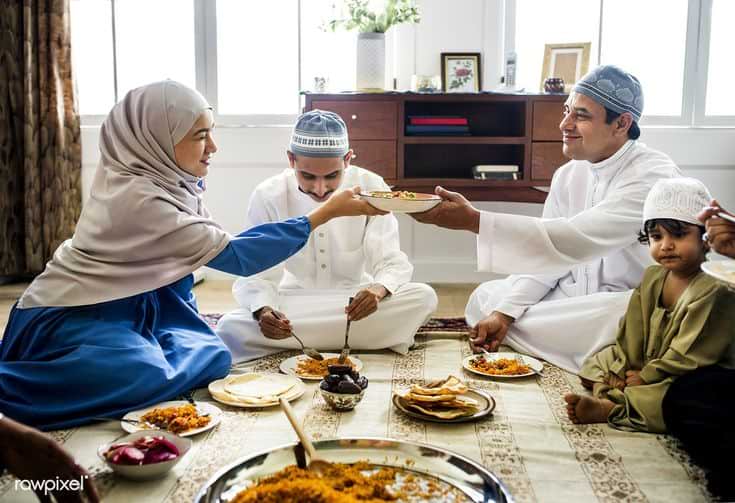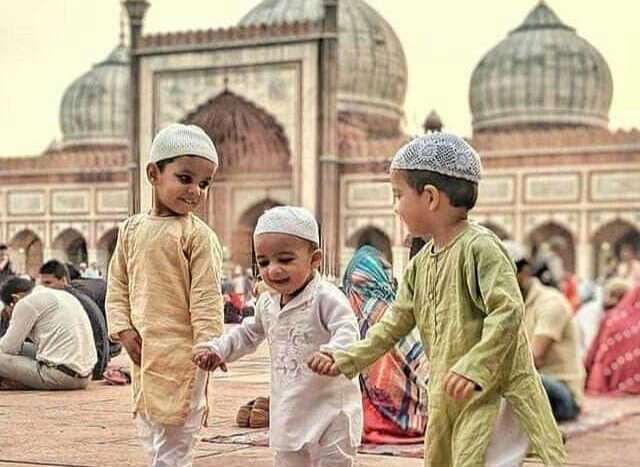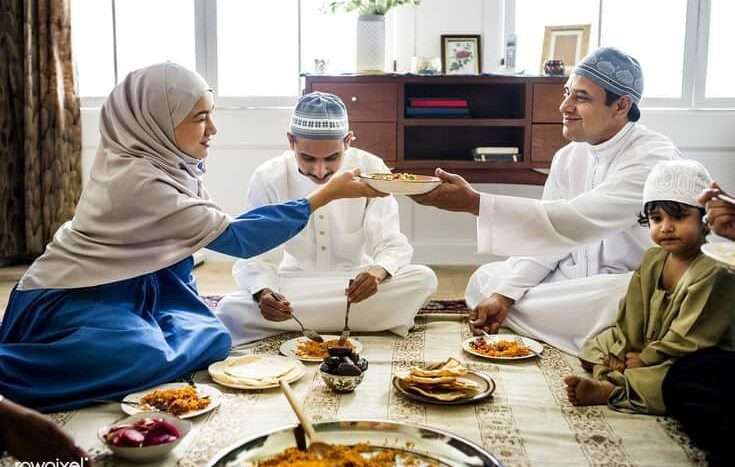Eid-ul-Fitr: A Celebration of Faith and Community

The Importance of Ramadan and the Celebration of Eid-ul-Fitr
When the sun sets on April 9th, the Tuesday eve, Muslims around the world will look skyward for a crescent of pale white light for the conclusion to the Islamic holy month of Ramadan decorated in the night sky and to embrace the month of Shawwal, starting with 3 days of the holy festival called Eid-ul-Fitr.
Significance of Ramadan
Beginning and ending with the new moon, Ramadan falls on the ninth month of the Arabic lunar calendar. In 610 AD, during this holy month, Prophet Muhammad (SAW) had the first verses of the Quran. It’s a time for Muslims to commemorate this revelation of the Quran, reflect spiritually, and grow closer to Allah. From sunrise to sunset, Muslims refrain from food, drink, and vices like gossip and lying. Additionally, this is a period of self-reflection, but it also serves as a reminder to be charitable to the less fortunate.
Ramadan is one of Allah’s (SWT) most precious gifts to Muslims and Muslims should make the effort to reap benefits from this blessed month. Fasting, reading the Holy Quran, giving to charity, and attaining the blessings on the Night of Power; are all gifts of Allah (SWT).
Festivities of Eid-ul-Fitr
The conclusion of Ramadan brings about the festivities of Eid-ul-Fitr. It is one of the two Eids in Islam that Muslims celebrate all around the world. The feast of Eid-ul-Fitr marks the end of 30 days of fasting and prayer. On this day, Muslims from across the world gather for prayer celebrations, a three-day celebration where families and friends get together, share their Ramadan experience.
It is a fun and significant occasion; one that people will remember until the next time Ramadan comes around.
Celebrating with Loved Ones
Eid-ul-Fitr is not just about the end of fasting, but also about coming together as a community. It is a time for forgiveness, reflection, and gratitude for the blessings that have been bestowed upon us. During this time, families wear new clothes, exchange gifts, and indulge in delicious traditional foods. The spirit of generosity and unity is palpable during Eid-ul-Fitr.
The Spiritual Aspect
While Eid-ul-Fitr is a time of celebration, it is also a time for spiritual reflection. Muslims use this time to express gratitude for the strength and discipline they have shown during Ramadan. The prayers offered during Eid-ul-Fitr are a way to seek forgiveness and blessings from Allah (SWT). It is a time to renew one’s faith and commitment to living a righteous and virtuous life.
EID SHOPPING
As the Eid festival approaches, the shopping centers, malls, and markets in Pakistan’s megacity flooded with thousands of people for Eid shopping.
With the commencement of the last 10 days of the fasting month, city markets witness a huge rush and the shopping markets remain open till dawn across the city of more than 20 million people. Thousands of citizens throng to the shopping malls, plazas, and markets for Eid shopping while tailoring shops also remain open day and night to complete booked orders of sewing unstitched clothes.
A large number of people buy clothes, shoes, children’s garments, jewelry, and other items ahead of the Eid-ul-Fitr celebration. According to business community representatives, more than 100 billion rupees in businesses were expected to be spent during Ramazan 2024 for Eid shopping, as goods and stuff were being transported to other parts of the country as well.
Although current economic conditions are tough in the country and the inflation rate is at a historic peak, it has been reported that more than 100 major markets and shopping centers in the seven districts of Karachi division are producing billions of rupees in business during Eid shopping, that is boosting country’s economy.
In Saddar, Gulshan e Iqbal, Defence, Clifton, Liaquatabad, Nazimabad, North Karachi, Malir, Korangi, Quaidabad, Karimabad, Gulistan e Jauhar, Lyari, Keamari, Gulshan e Hadid and other areas, all shopping centers get flooded with buyers.
The city administration takes strict security measures to provide security to the general public, but despite these measures, several incidents of looting, dacoity, and snatching of valuables are being reported from the city’s different areas, while Police and other law enforcement agencies have also arrested several culprits.
EID SPECIAL TRADITIONAL FOODS
Eid-ul-Fitr is also known as “Sweet Eid” because of the amount and variety of sweet dishes consumed on this occasion celebrating the happy end of Ramadan (which brings the mercy of Allah). Bangladesh, Brunei, Pakistan, Iran, Indonesia, India, Malaysia, and the Arab world have traditional dishes to celebrate Eid. The breakfast of Eid-ul-Fitr is sweet dishes, including boeber, a dish made by cooking vermicelli with dates. The vermicelli and dates, cooked separately in milk, are also consumed as breakfast before offering Eid prayer. Another variety includes balaleet, popular in the Persian Gulf region.
Depending on the locality, the types and forms of the cuisine vary but there are always sweet dishes.
In the Middle East, a wide variety of desserts, bakery items, candy, treats, sweets, and cookies are made or bought for consumption during Eid. Those include
- Mammol
- Ghorabya OR Gurabiya,
- Kahk, baklava,
- Betitfour
- Barfi
- Cakes
- Cookies
- Kanafeh
- Halva,
- Marzipan.
In South Asia:
- SheerKurma
- Barfi
- Halwa
- Kheer
- Shahi tukda
- Chomchoms
- Barfis,
- Gulab jamuns
- Different types of pithas
- Rasmalai,
These are not only consumed inside houses but also presented to relatives and friends when visiting them on Eid-ul-Fitr.
Pulao, korma, kabab, and curries are usually prepared for lunch and dinner. Biryani is also common. Biryani is a special dish prepared on the occasion of Eid. Its primary constituents include meat and rice. There are, however, many other varieties of ingredients and types of preparation of biriyani that can be observed during this festival.
In conclusion, Ramadan and Eid-ul-Fitr are times of spiritual growth, community bonding, and gratitude for the blessings of Allah. As Muslims around the world come together to celebrate these sacred occasions, they are reminded of the importance of faith, charity, and unity. Through fasting, prayer, and acts of kindness, believers strengthen their connection to Allah and to one another, creating a sense of peace and joy that transcends borders and cultures.


